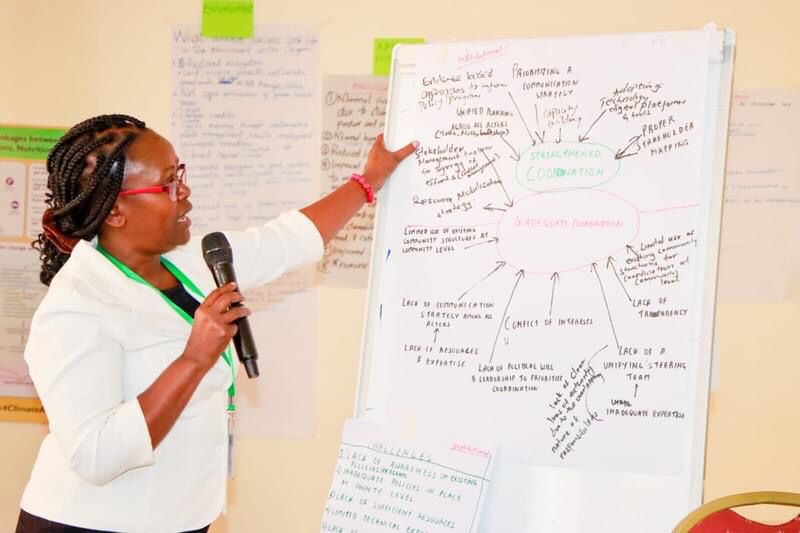Laikipia County targets to benefit from a three-year research project that aims to address mental health issues among the pastoralists attributed to climate change.
According to the multi-sectoral stakeholders from the county health sector, drought authorities, members of local communities, and environmental-led organizations speaking during a Visibilize for Climate Action workshop in Nanyuki said that climate change had resulted in mental illness among women and children hence the need to find a lasting solution to the menace.
Laikipia County Executive Committee (CEC) in charge of health Dr. Albert Taiti said that the loss of livestock among pastoralists’ communities during drought was also linked to increased mental health problems.
‘’Majority of people from Laikipia North depend on livestock and when they are wiped out by drought could lead to mental illness due to lack of livelihood in the household,” said Dr. Taiti.
The research implemented by the African Population and Health Research Centre (APHRC) will help to determine the impact of climate change on the nutritional status of children under the age of five and women of reproductive age in the pastoral areas which the stakeholders pointed out they bore the brunt of drought, floods among other ecological disasters.
‘’Poverty among the youth as a result of climate change also makes them fall victim to mental health problems because jobs that could be available to them are lost in drought or flood situations,” The CEC added.
Additionally, APHRC research scientist Dr. Alice Karanja decried that insufficient decision-making and lack of proper policies to tackle climate change challenges was also a major concern which had led to an increased poverty index among the communities living in drylands hence catalyzing mental illness.
‘’Impacts of climate change especially in the pastoral communities are highly affected due to increasing events of floods, drought, and farmers losing their livestock as a result. This has been our major concern which we are focusing on to make visible the issues of climate change through our research,” said Dr. Karanja.
She further noted that drought conditions increased the odds of wasting and underweight by nearly 50 percent with about 33 percent of children under five years from dry areas being stunted. This is according to the APHRC research they conducted recently.
‘’We realized that about 30 percent of children under five years are currently stunted and malnutrition for women continues to increase as the years go by. We are hoping to work with communities to promote agro-ecological practices including farming diversification for improved livelihood,” she revealed.
On his part, Sammy Edupu, a youth from Rumuruti Township in Laikipia, encouraged young people’s involvement in developing climate change policies aimed at making informed decisions and at the same time urged for awareness creation on environmental issues.
The 2022 Kenya National Adolescent Mental Health Survey led by the same APHRC research intuition indicated that 44.3 percent of adolescents aged 10-17 years had reported experiencing mental health problems in the past 12 months with anxiety being most prevalent with 26.7 percent.
The same research is being carried out in the counties of Samburu and Turkana.





